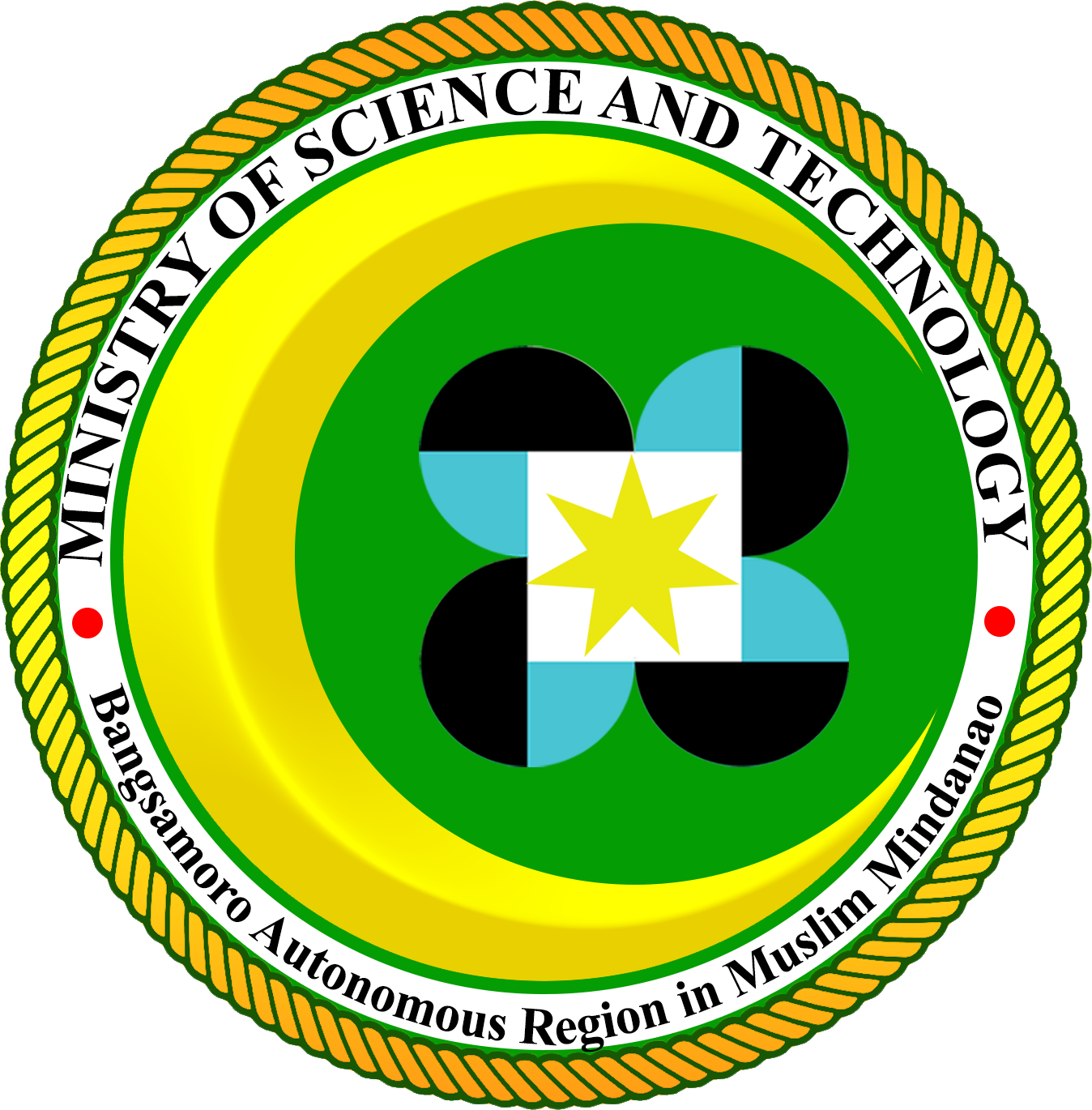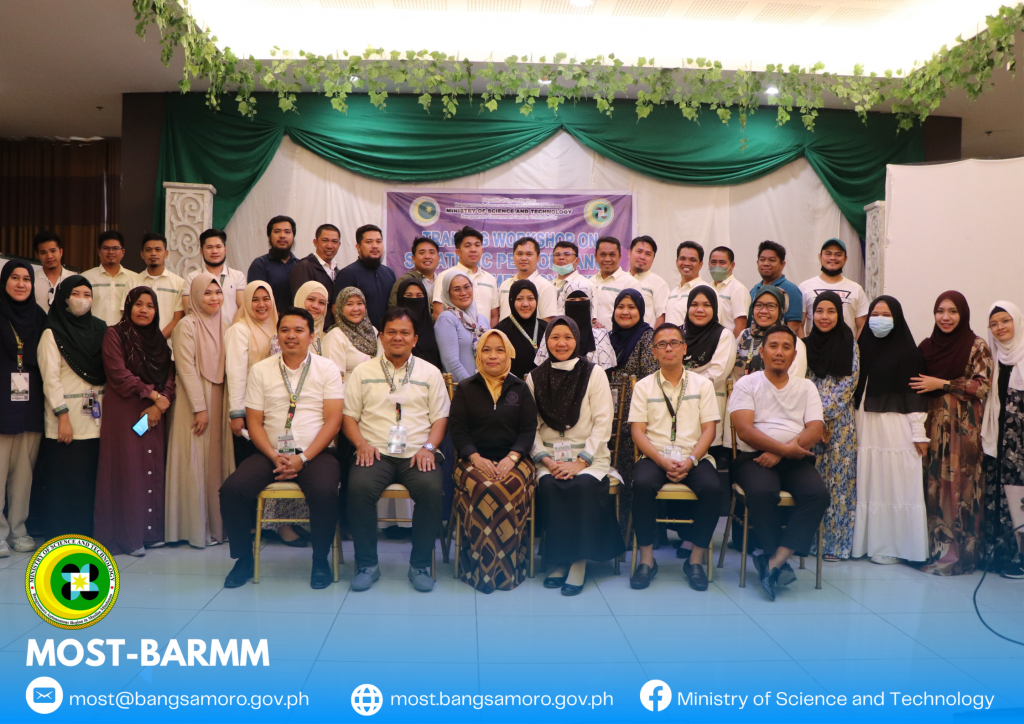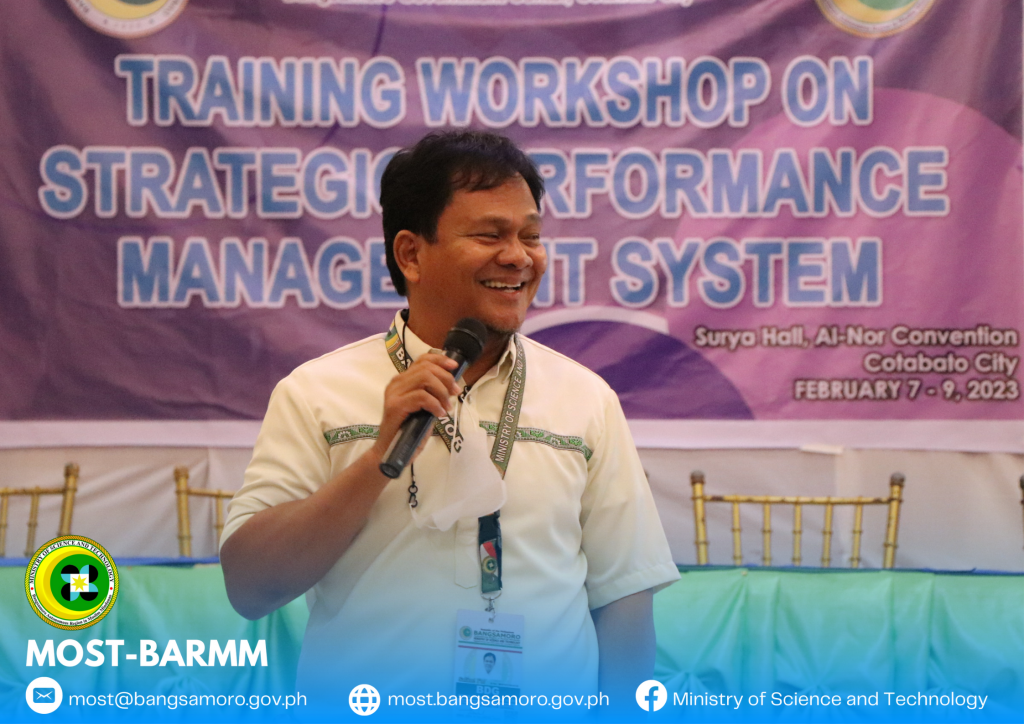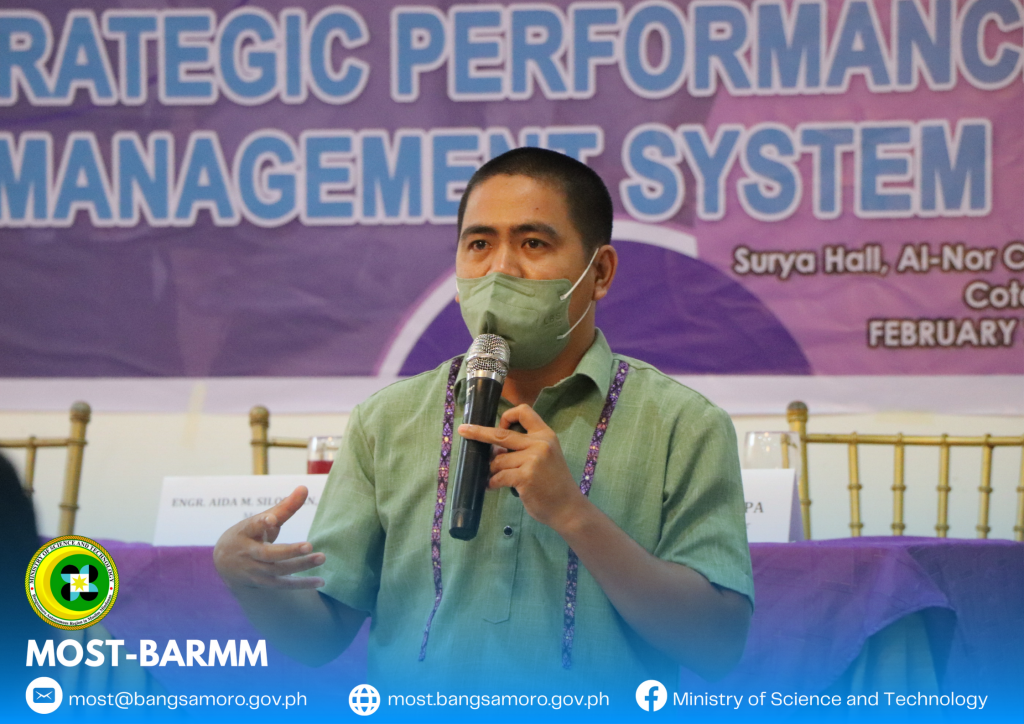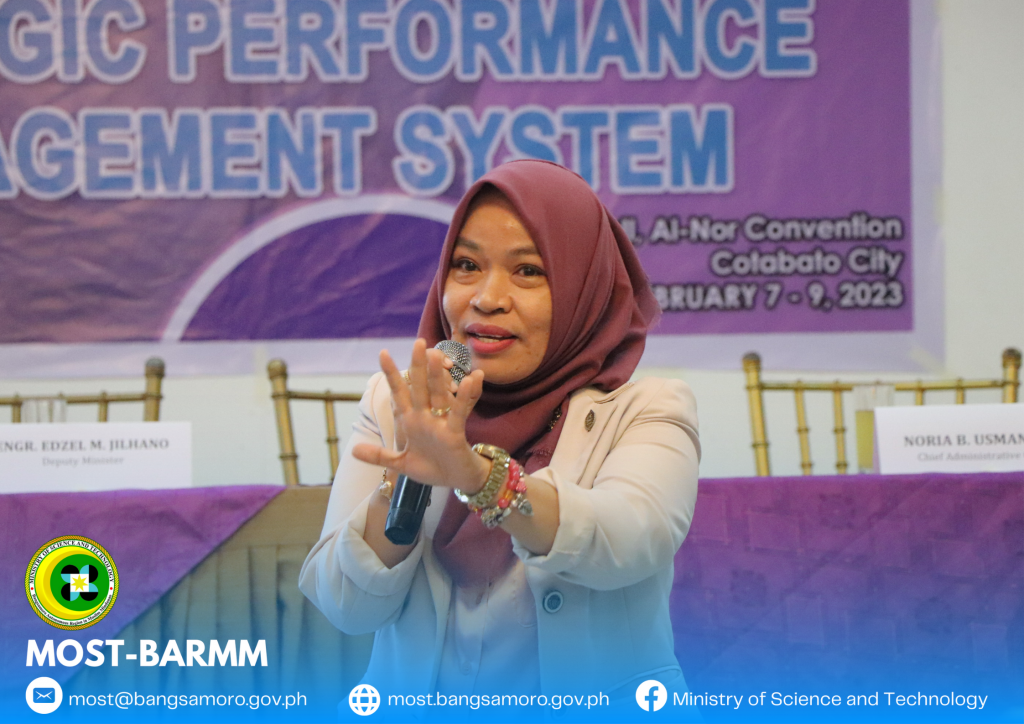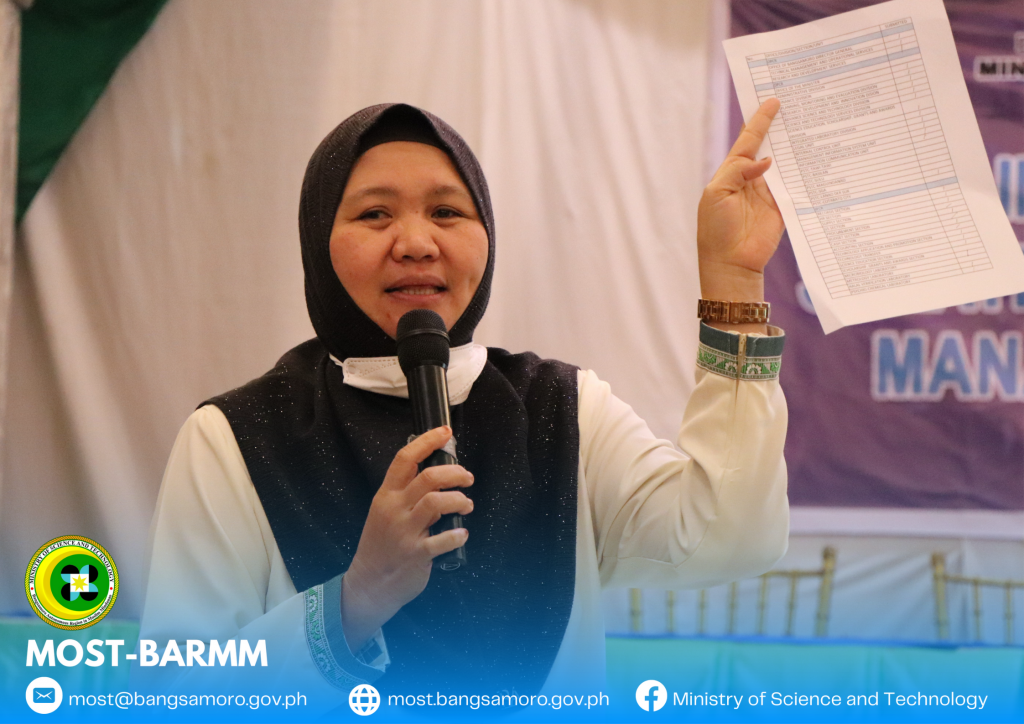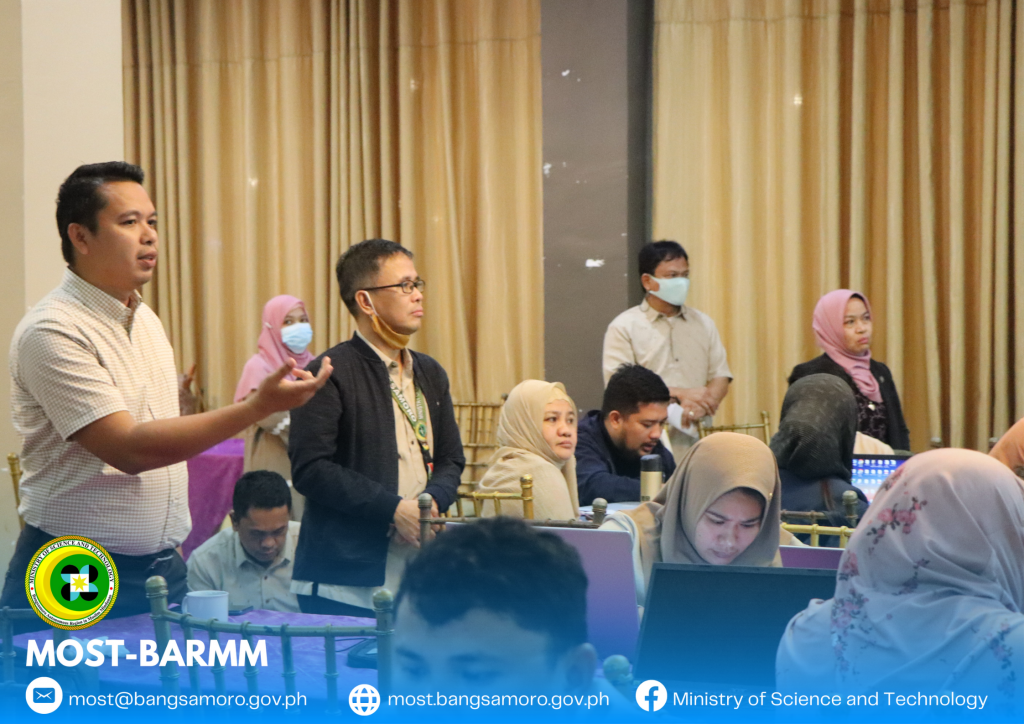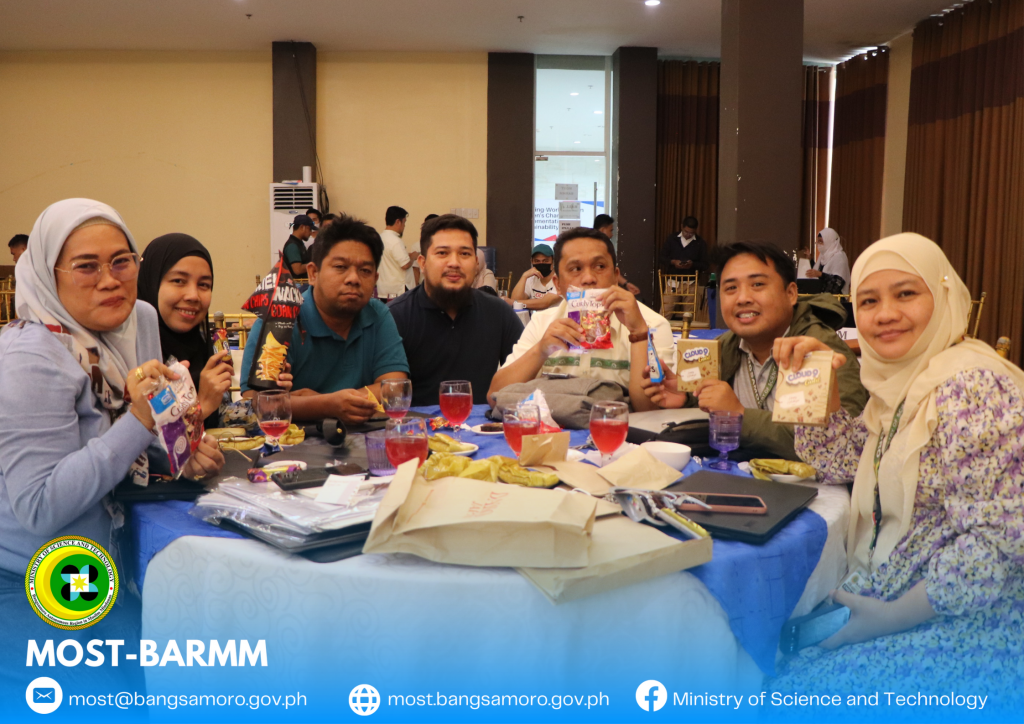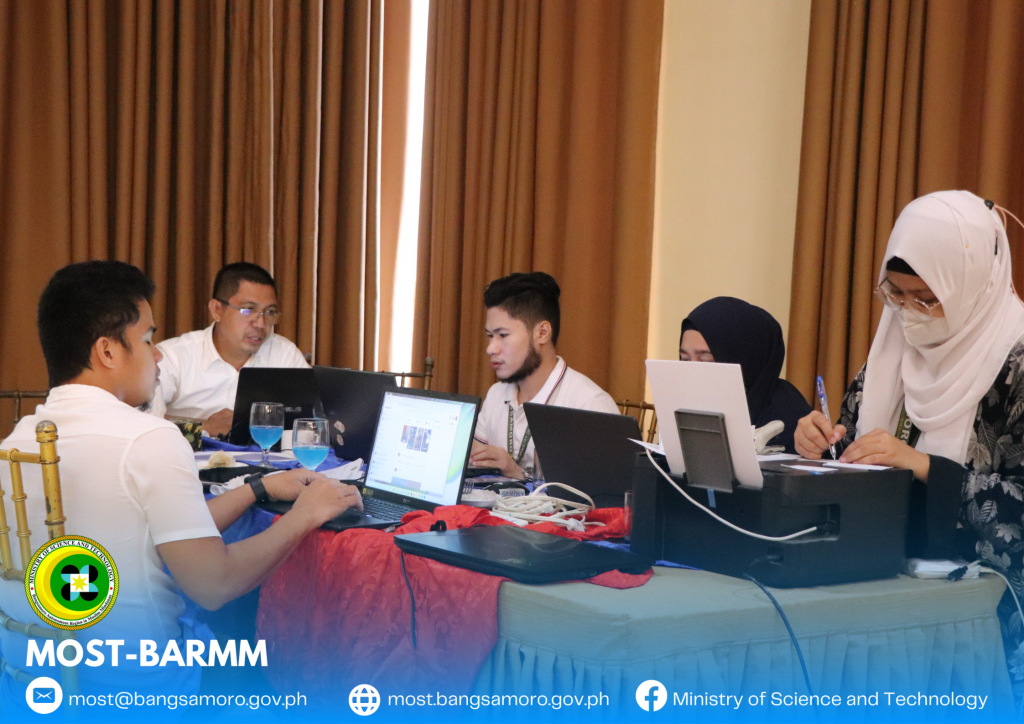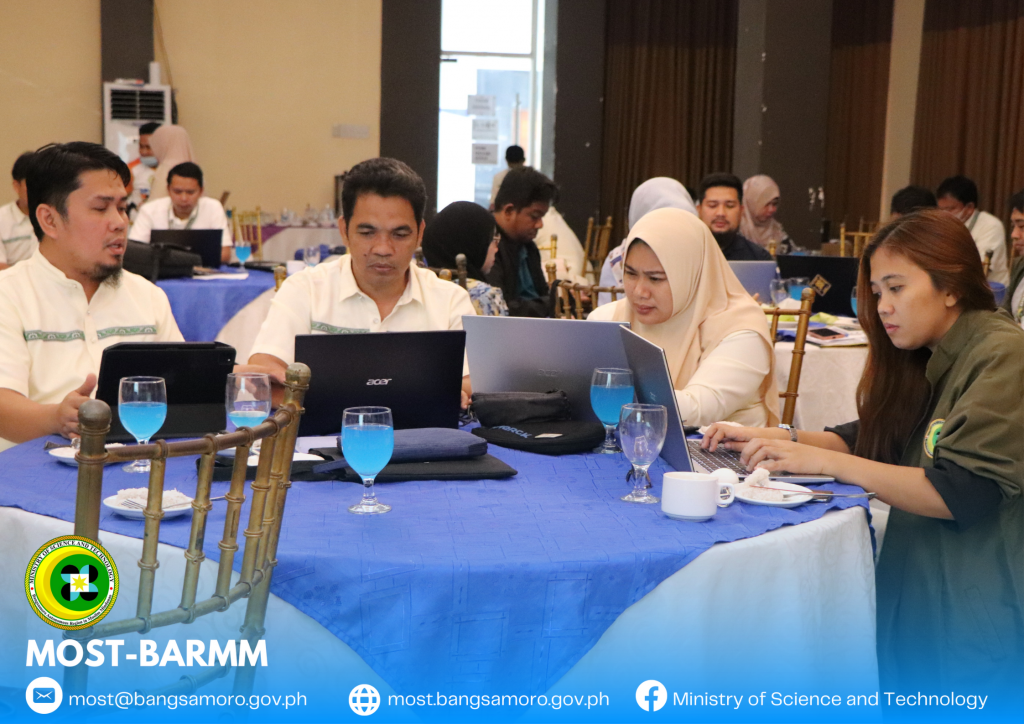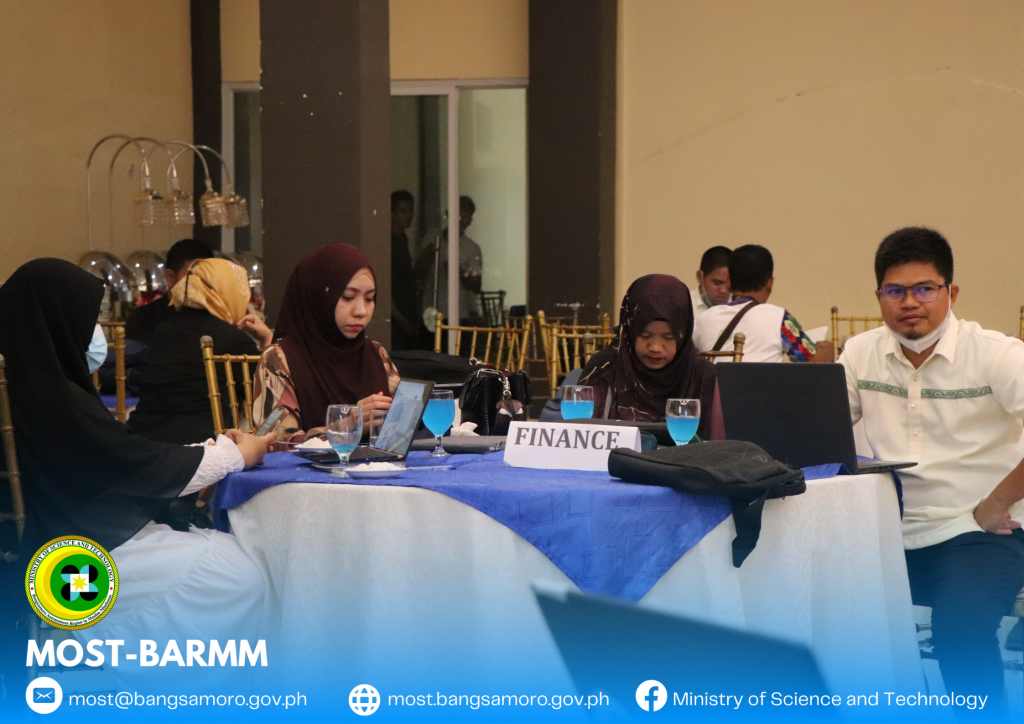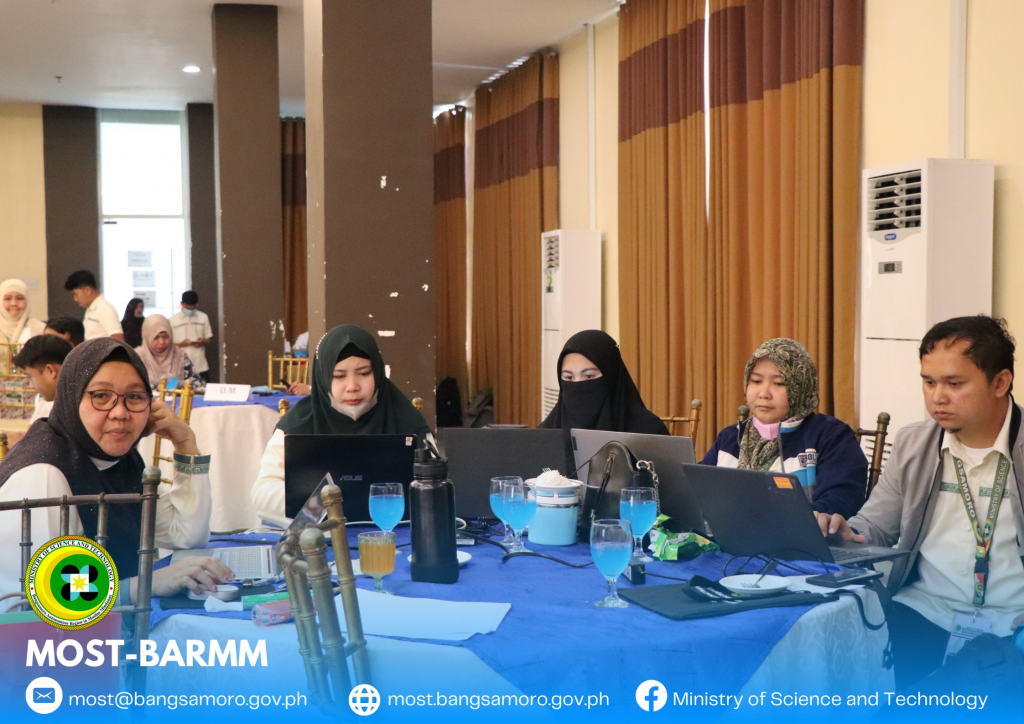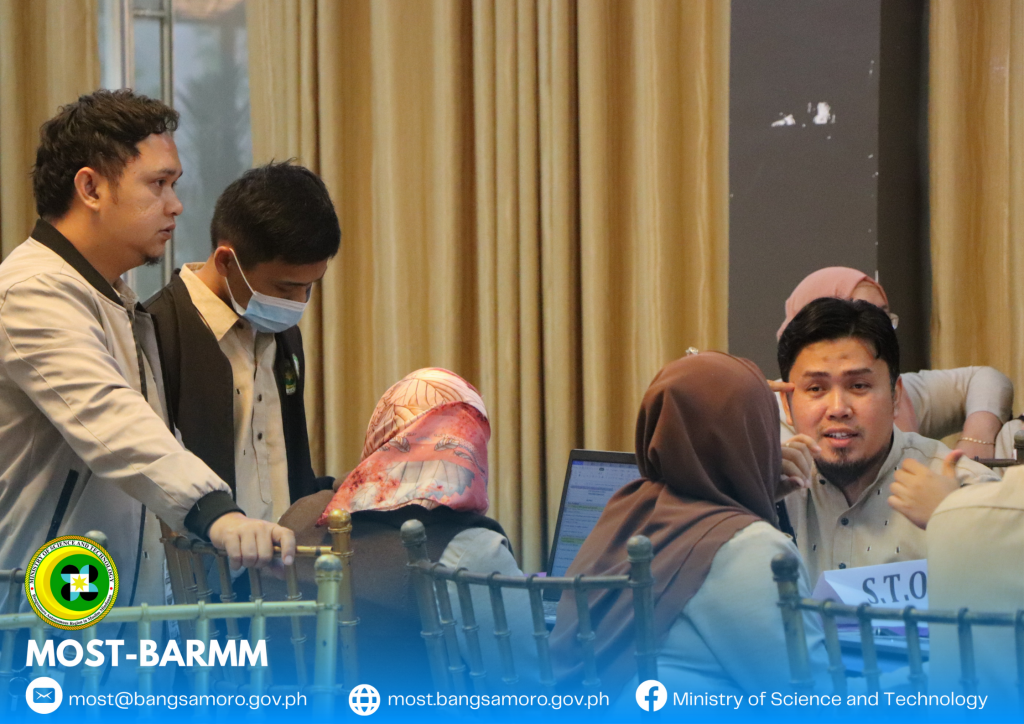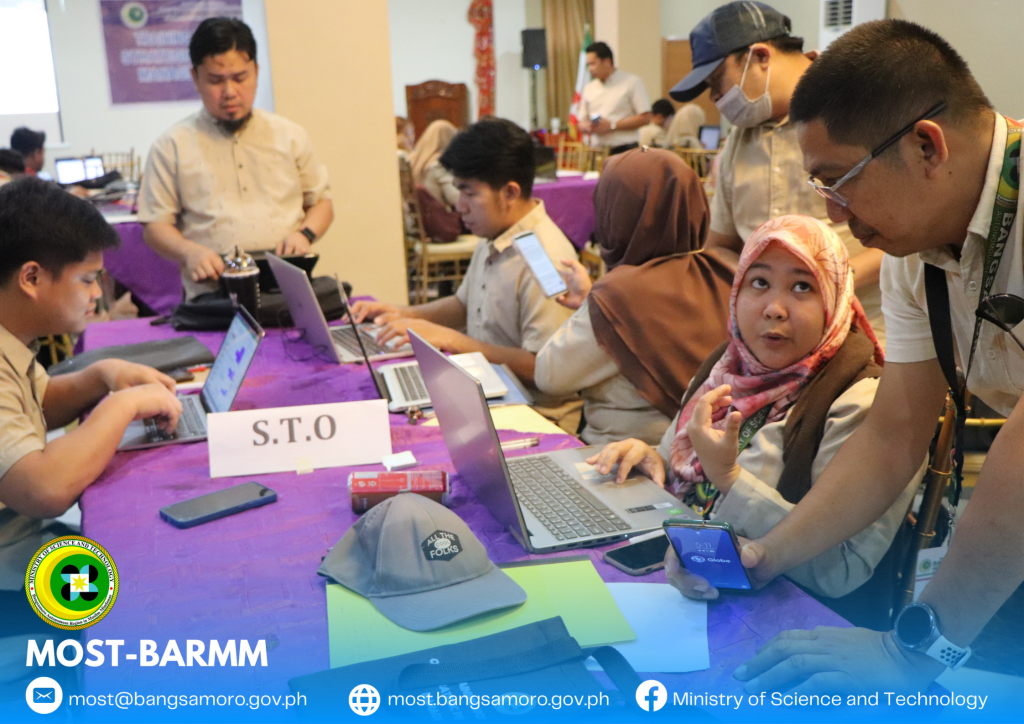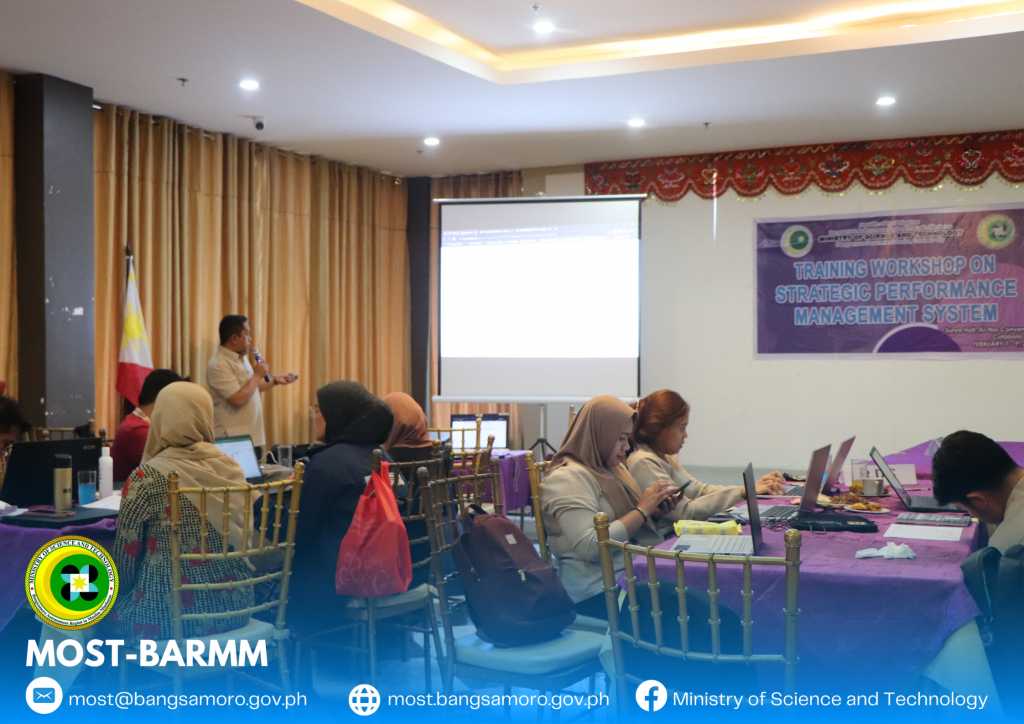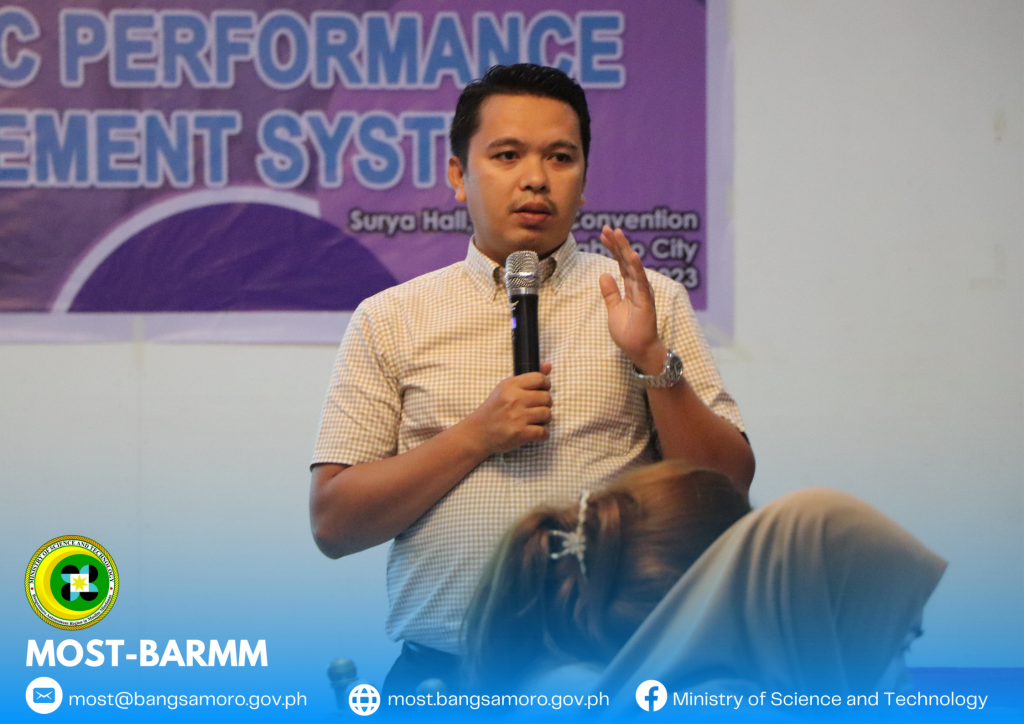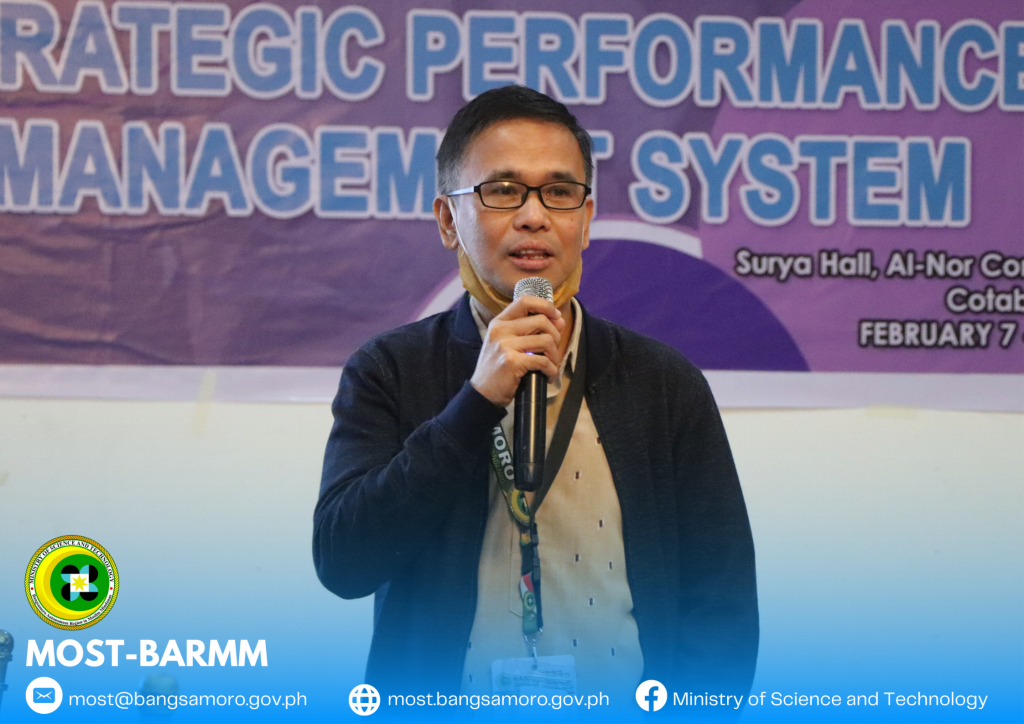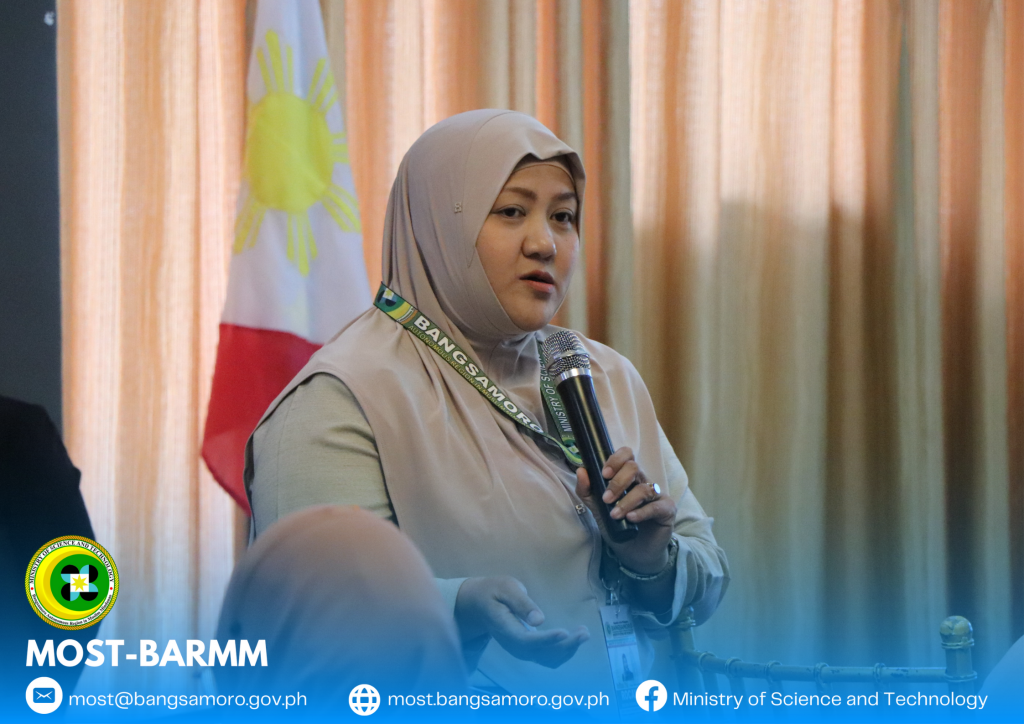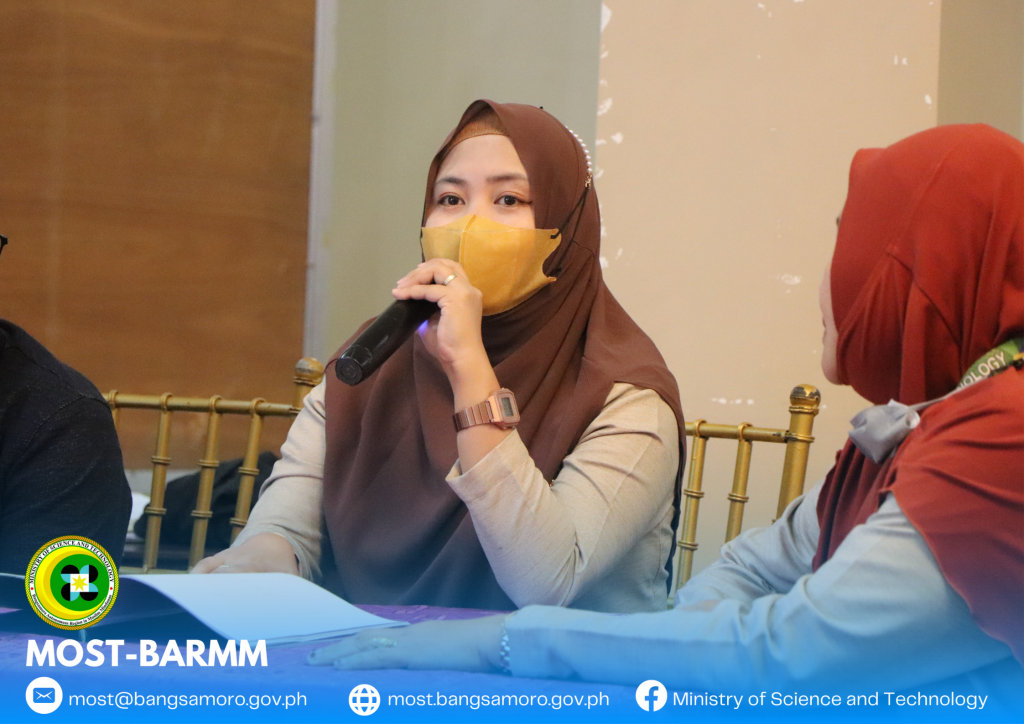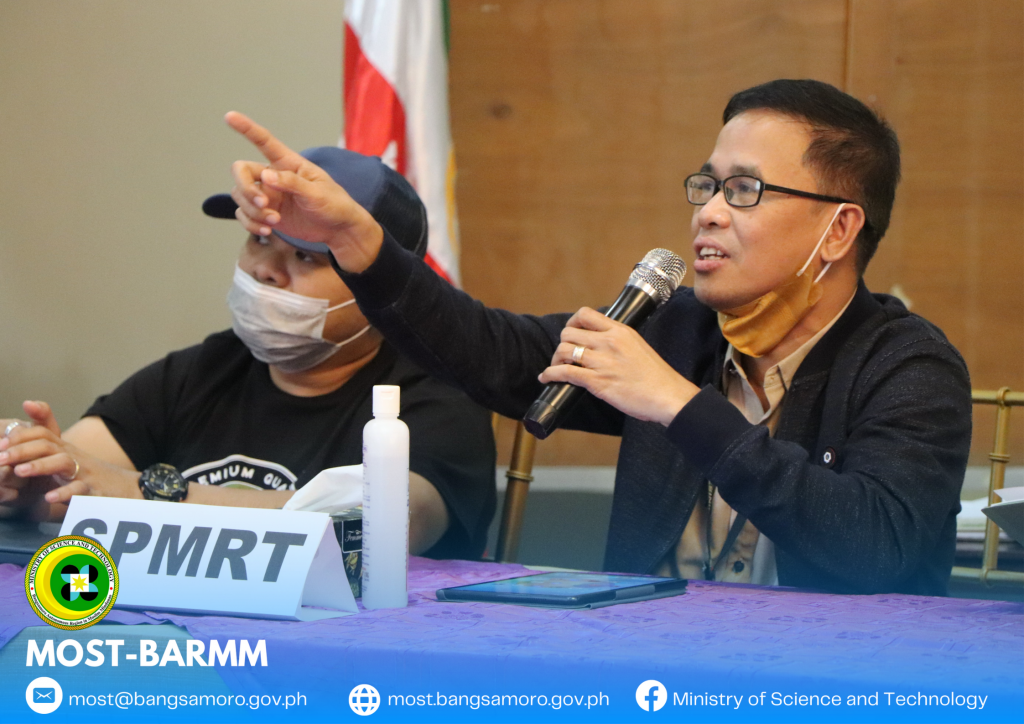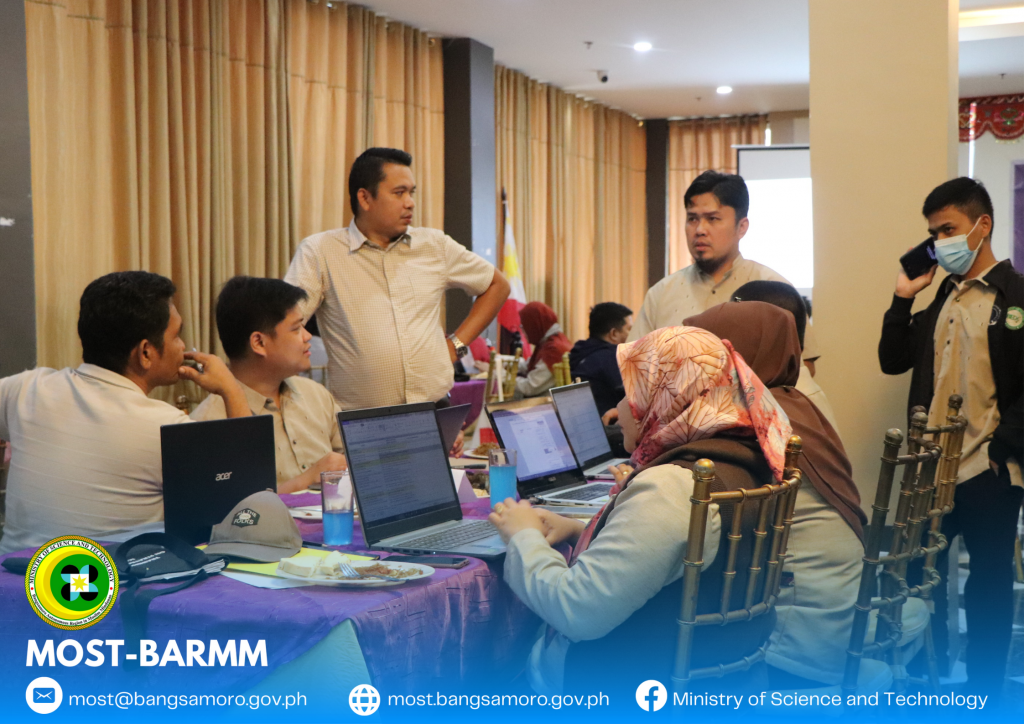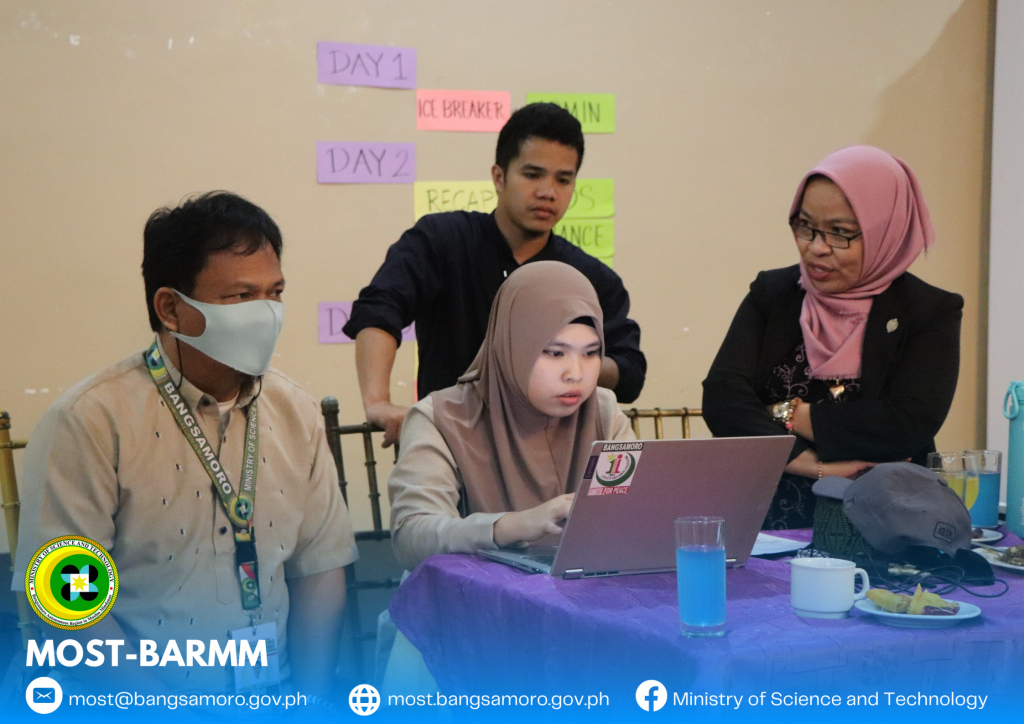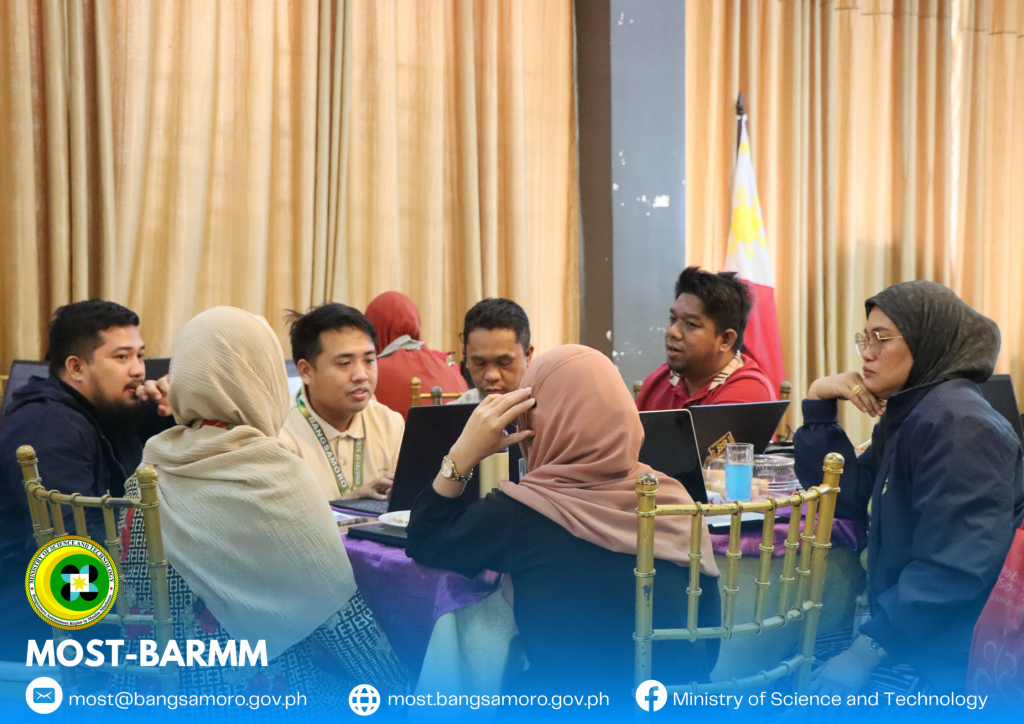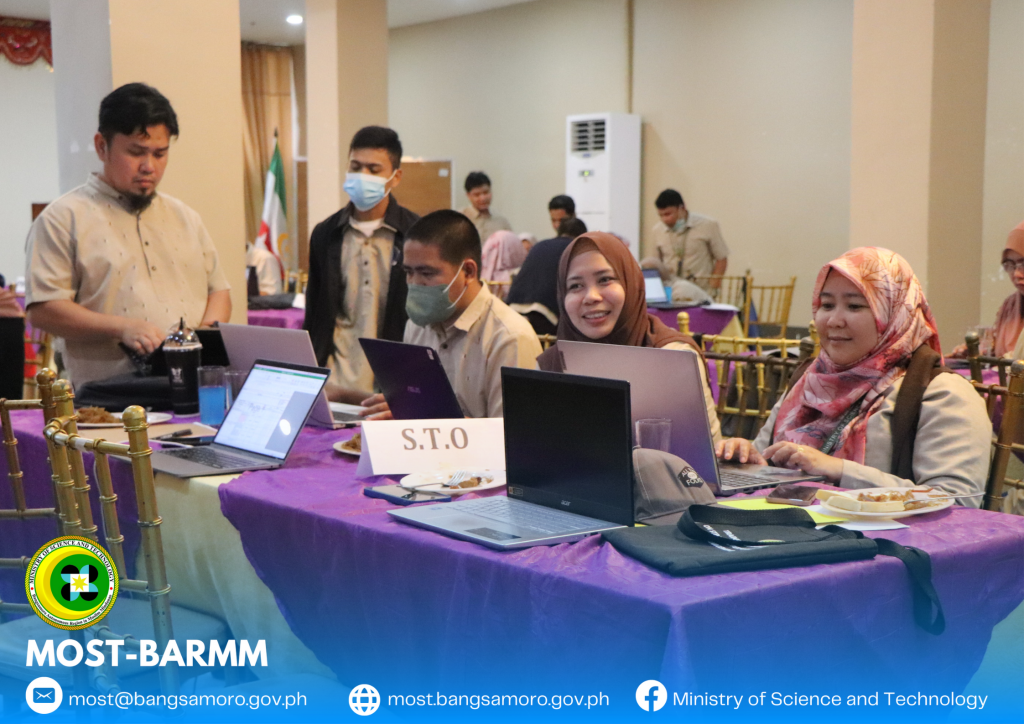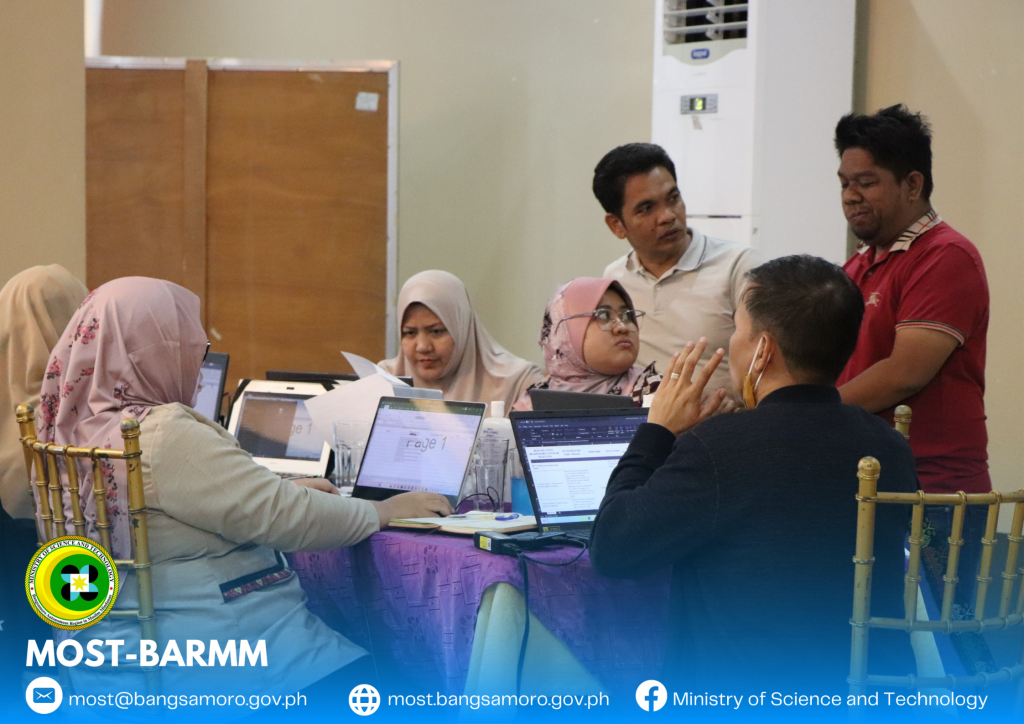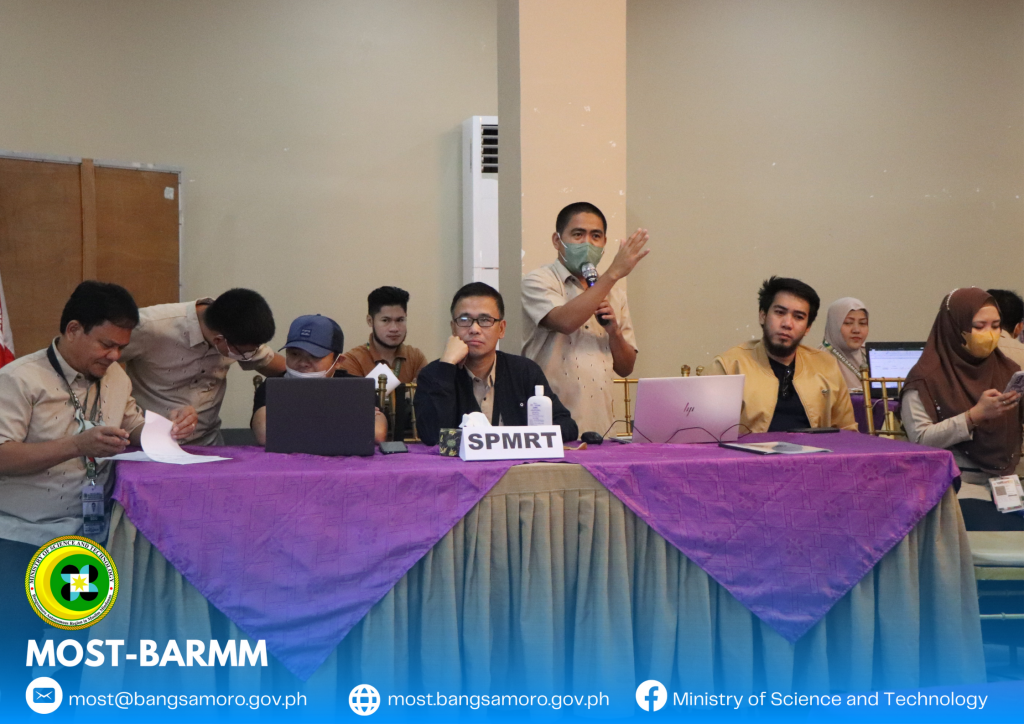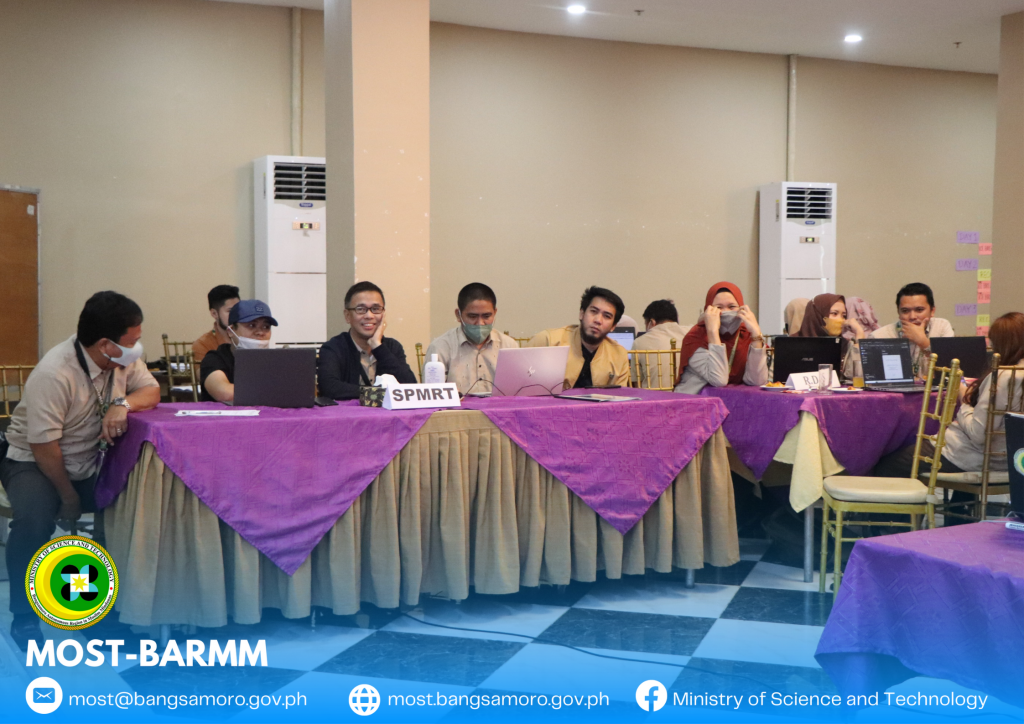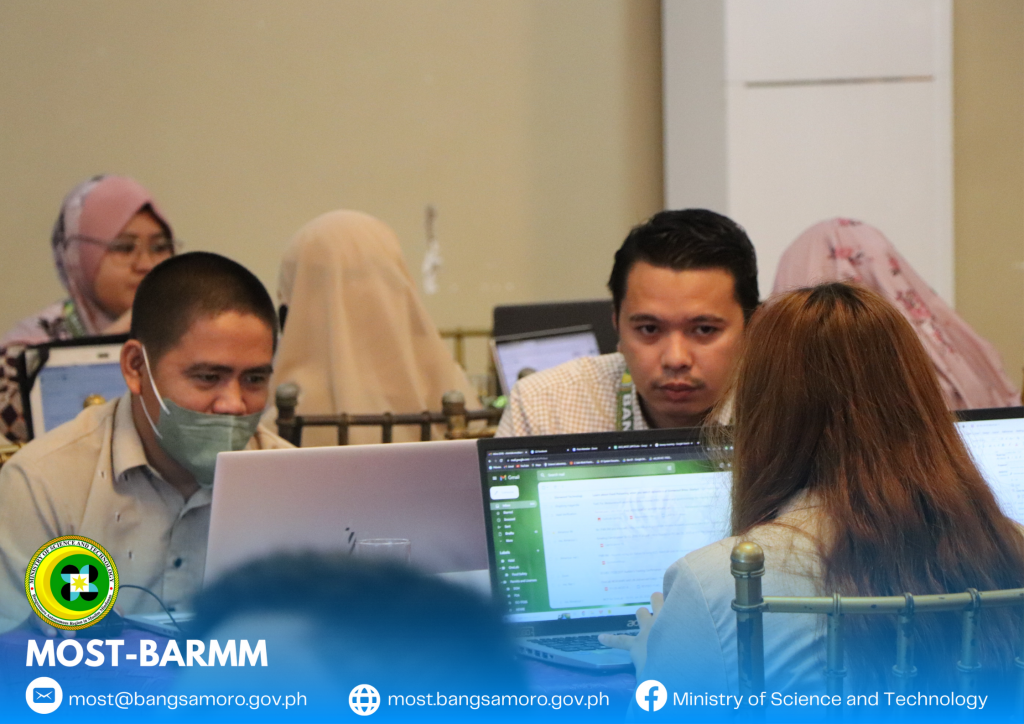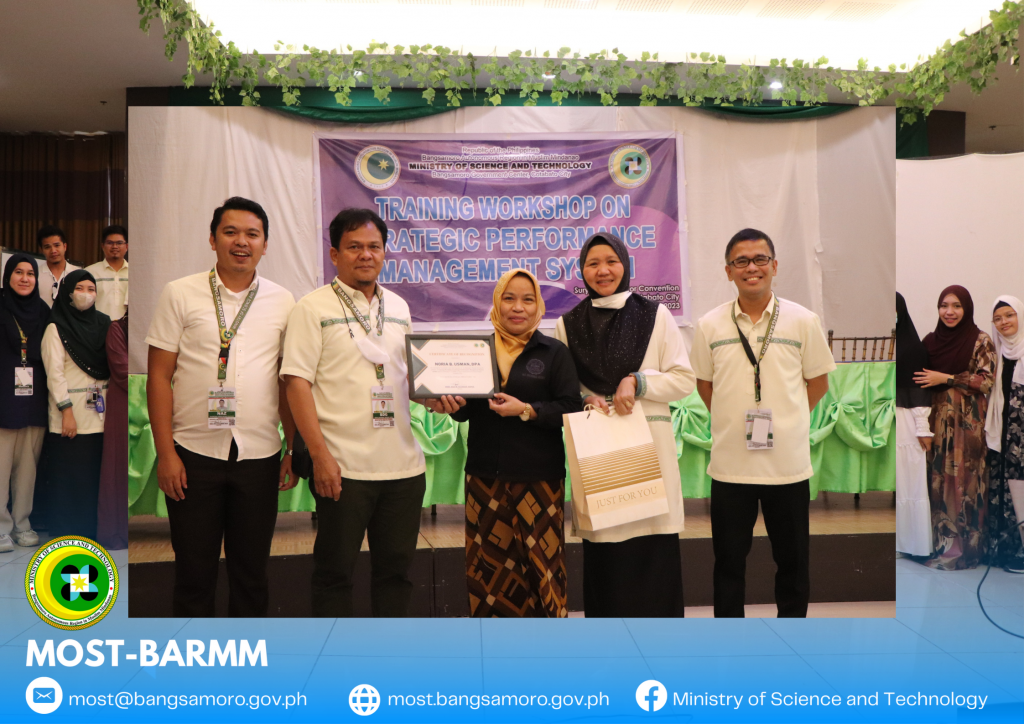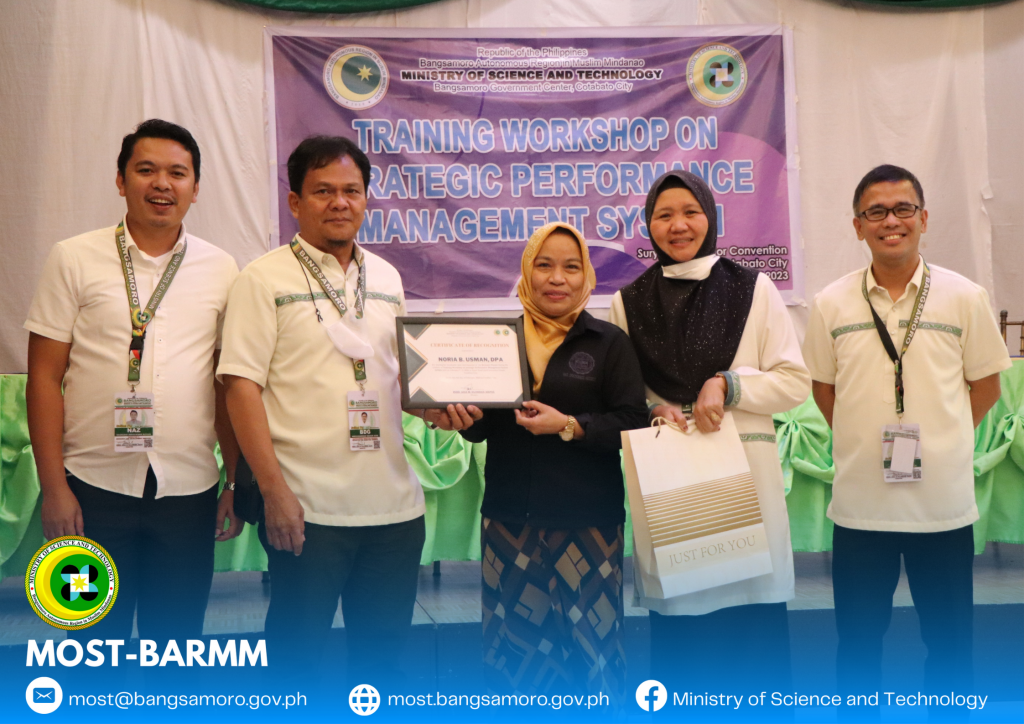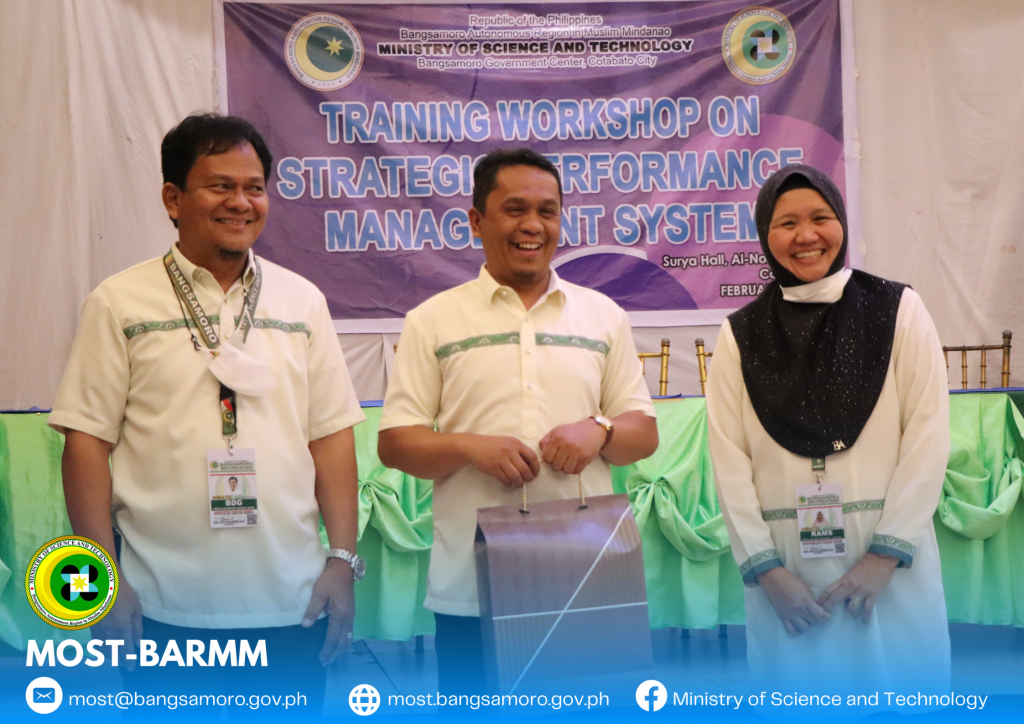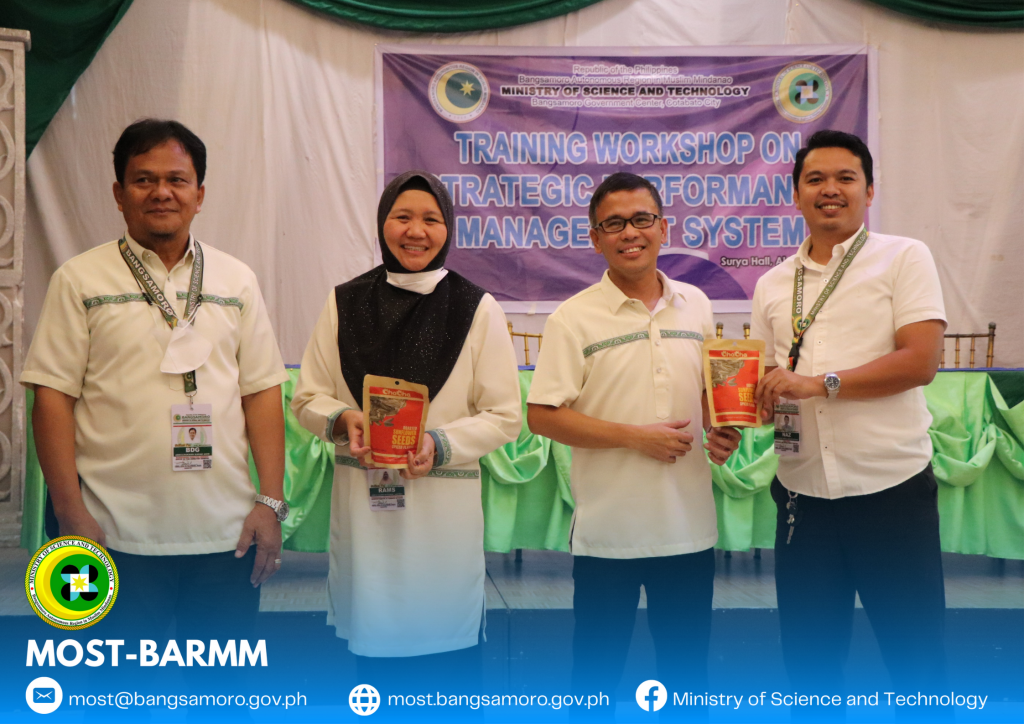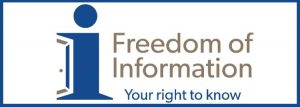Cotabato City, BARMM — 50 employees of the Ministry of Science and Technology (MOST) from regional and provincial offices, attended and participated in the training workshop on Strategic Performance Management System at Surya Hall, Mall of Alnor Convention Center in this city on February 7-9, 2023.
The ministry aimed to orient its employees about the objectives and benefits of SPMS, promote awareness and interest in it, adopt and publish criteria for evaluating employees, provide personnel mechanisms for appropriate actions on matters pertaining to employees, and more.
In the opening program, Prof. Hashim Manticayan, Senior Science Research Specialist, gave words of wisdom, explaining Islam’s guided principles for managing employee performance, such as justice, building trust, fulfilling commitments, feedback, and other notions.
“There must be clear intended objectives, rules and regulations which will direct employees in performing their duties and responsibilities.” Prof. Manticayan shared.
Meanwhile, Bangsamoro Director-General Engr. Abdulrakman Asim encouraged each employee to acquire learnings from the three-day activity and come up with their final draft of the Office Performance Commitment Review (OPCR), Division Performance Commitment Review (DPCR), and Individual Performance Commitment Review (IPCR).
“We are expecting that every division and individuals will come up with the final draft of OPCR, DPCR, and IPCR,” BDG said.
The activity proper started with inputs on Strategic Performance Management Systems, discussing what PMS is, why to focus on it, the benefits of PMS, and its scope and coverage. It was discussed by Dr. Noria B. Usman, Chief Administrative Officer in the Bangsamoro – Ministry of Finance and Budget Management (MFBM).
Dr. Usman encouraged the body to develop an excellent SPMS, avoid poor SPMS, and aim for fairness instead of being subjective in rating employees’ performances.
She comprehensively discussed the stages of SPMS, such as Performance Planning and Commitment, Performance Monitoring and Coaching, Performance Review and Evaluation, and Performance Rewarding and Development. Each stage has its tools for assessing the performance of each office, division, and section.
On the day two activity, MOST crafted its Ministry Performance and Commitment Review (MPCR) in the activity. It is the overall performance of the ministry where each service, office, division, and section have provided inputs in the MPCR, such as the major final outputs, success indicators, quality and timeliness and other portions in the form to include its target.
During the presentation of MPCR, the Strategic Performance Management Review Team (SPMRT) reviewed and commented on the inputs of each division in the MPCR. It is to develop the correct and appropriate MFOs and other inputs in the MPCR.
Furthermore, in the three-day activity, each division/individual crafted its OPCR, DPCR, and IPCR. A representative from each service/division/individual presented their outputs and reviewed by SPMRT and the resource speaker.
Other tools for evaluating the performance of each employee, such as monitoring and evaluation tools, were drafted. Dr. Usman also explained the process of evaluating employees and the rating system.
The activity ended with impressions and commitment from each director and individual employees to finalize and submit the accomplished SPMS tools.
The Strategic Performance Management System (SPMS) links employee performance with organizational performance to enhance the performance orientation of the compensation system. It ensures that the employee achieves the objectives set by the organization, and the organization, on the other hand, achieves the goals it has set as its strategic plan. Also, the MPCR, OPCR, DPCR, and IPCR are tools that measure the ministry/office/division/individual performances aligned with the organization’s mandate, vision, and mission.
#MOSTUpdates2023
[Information and Communication]